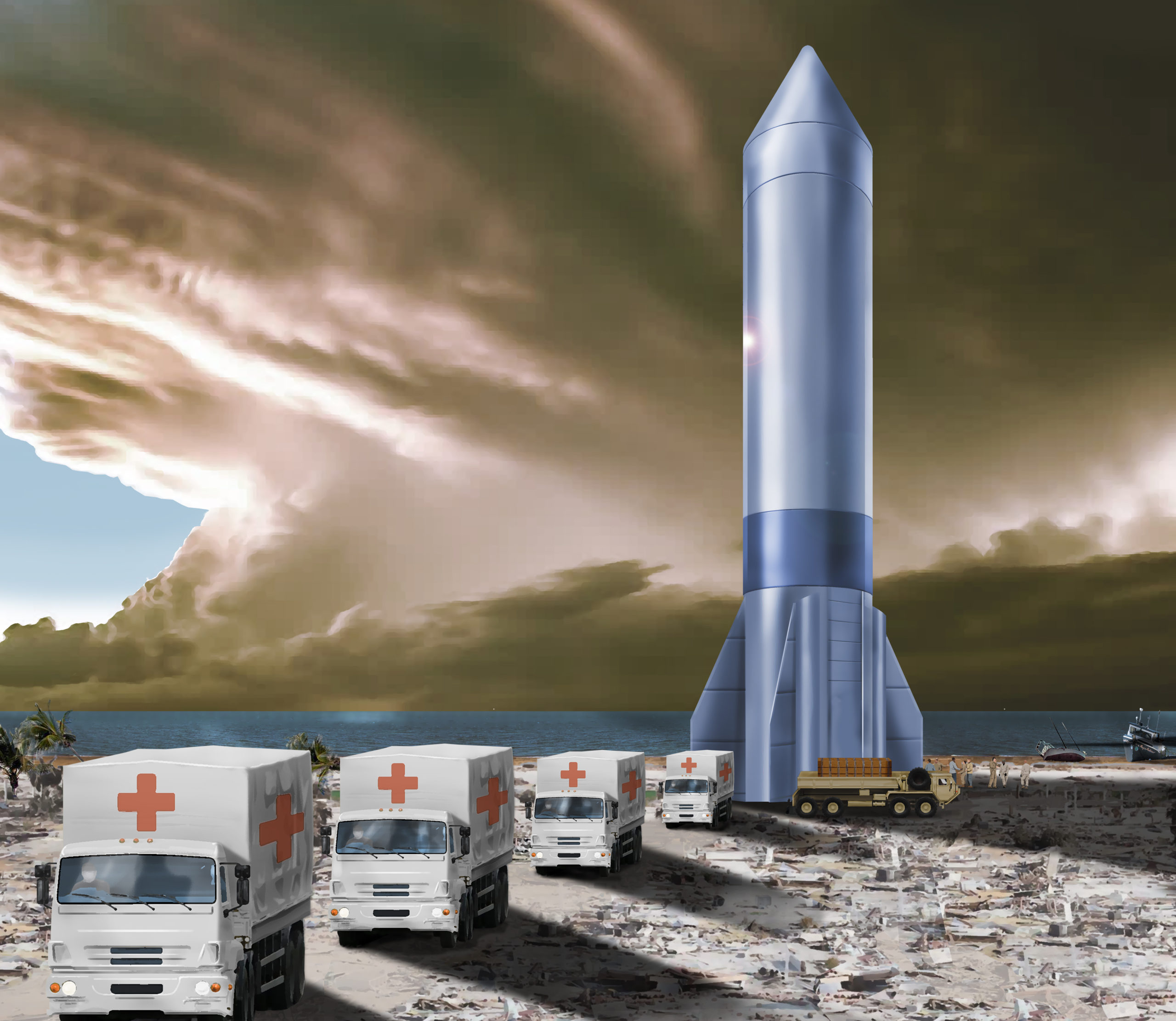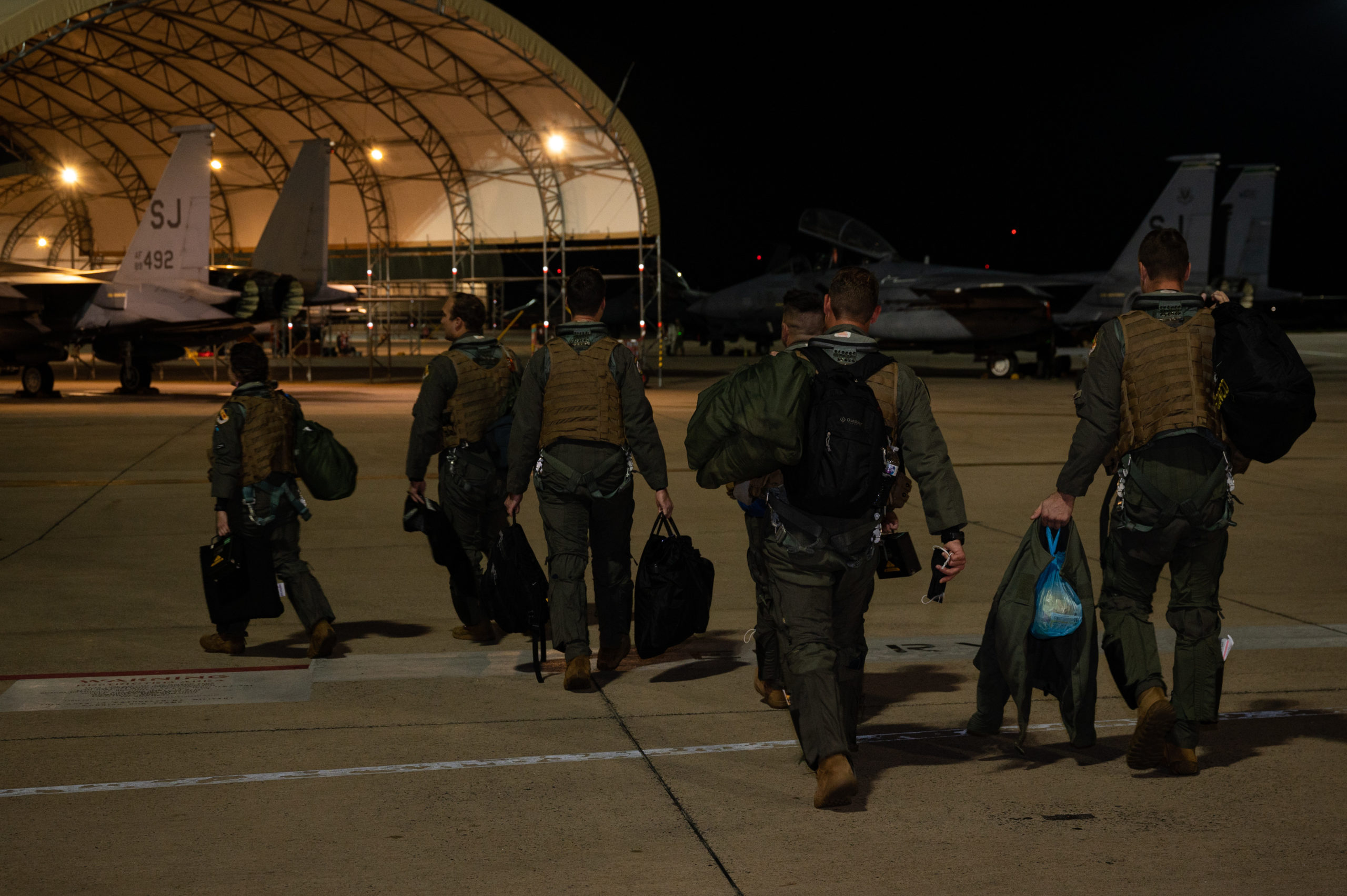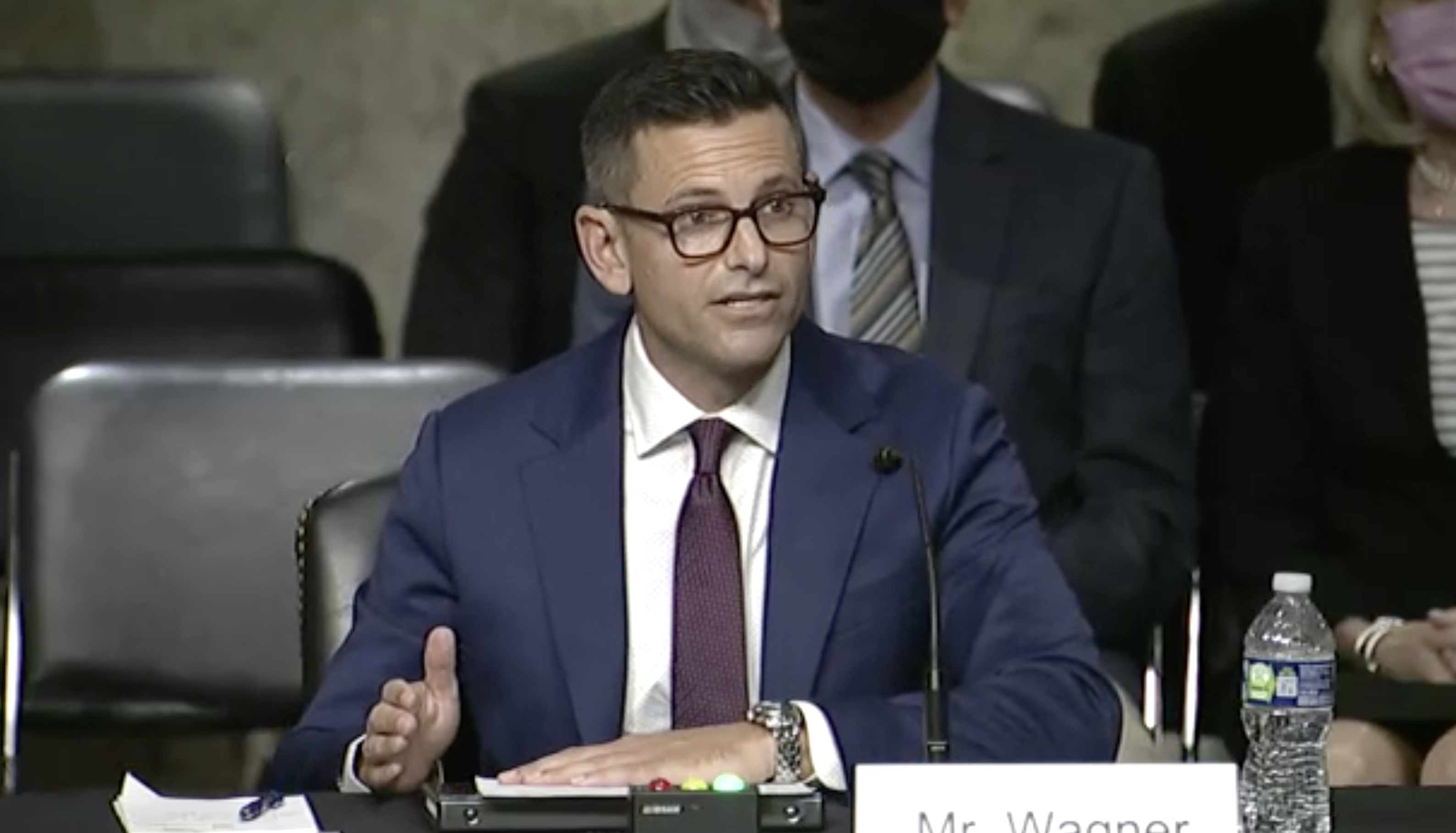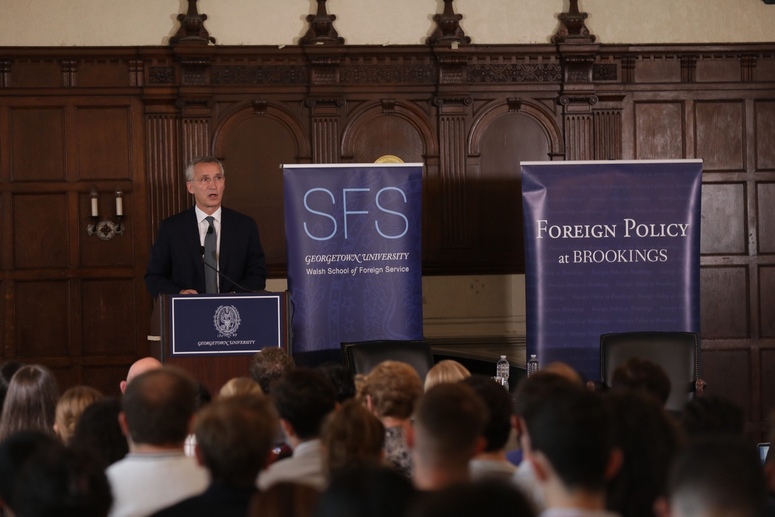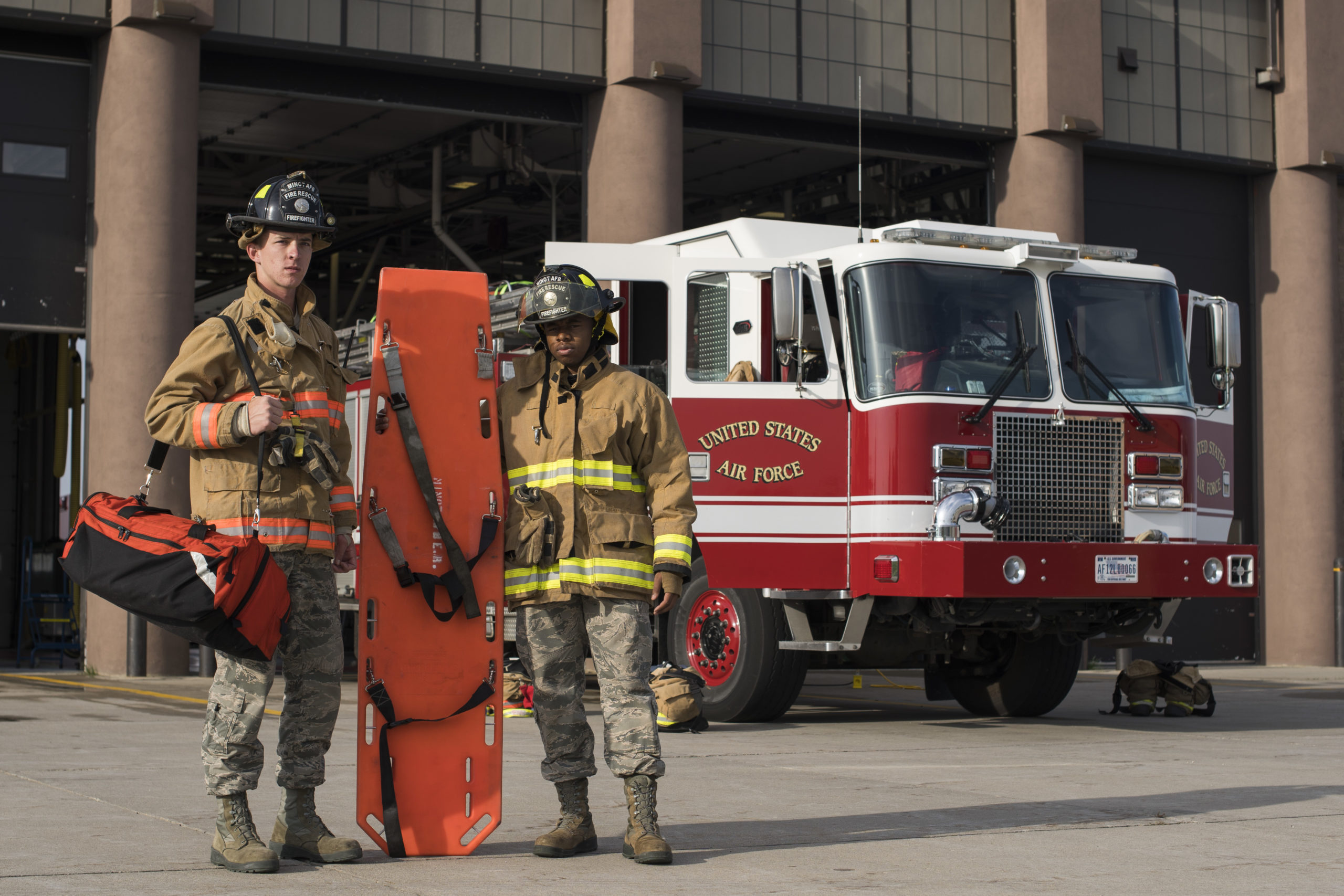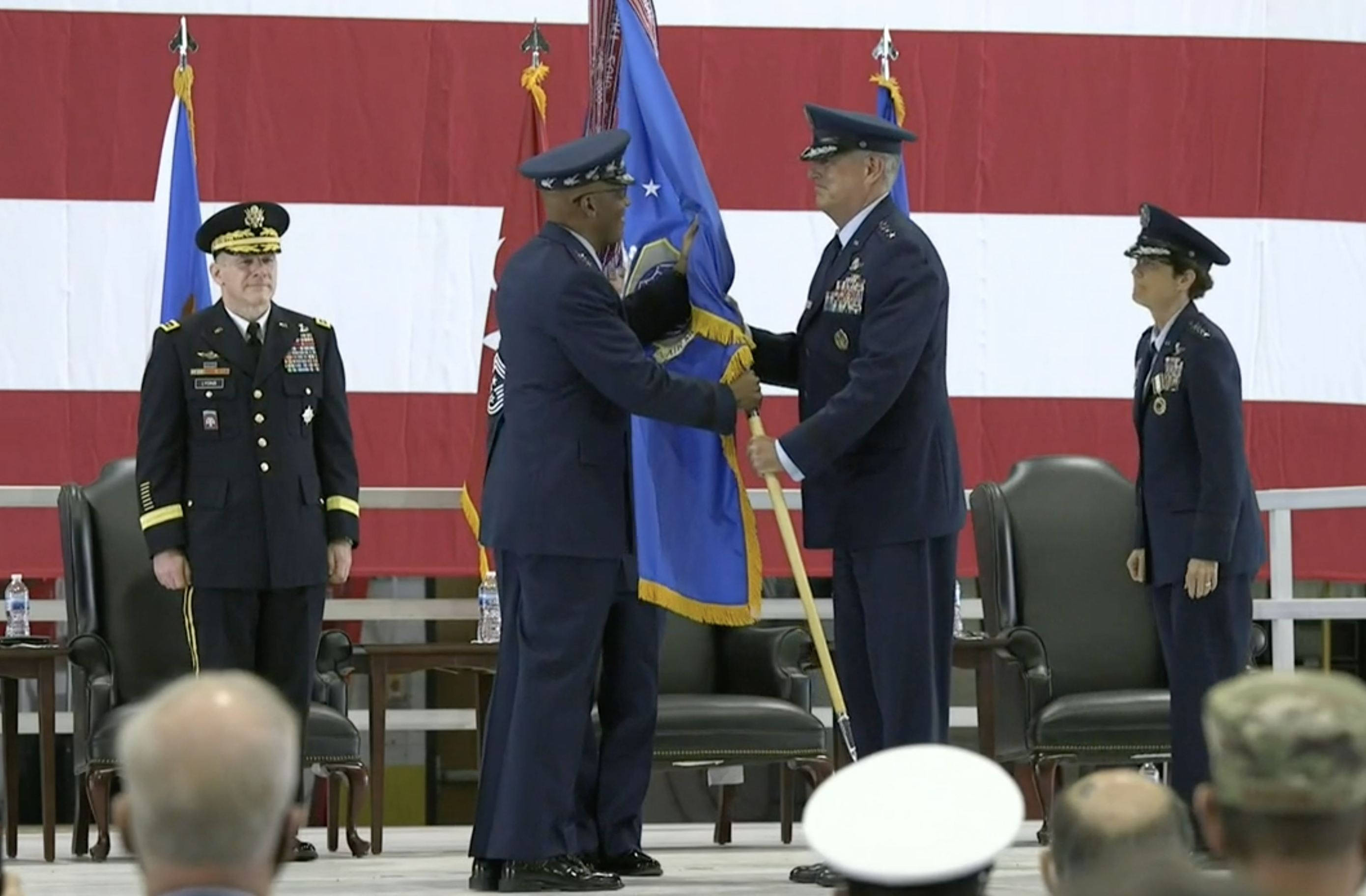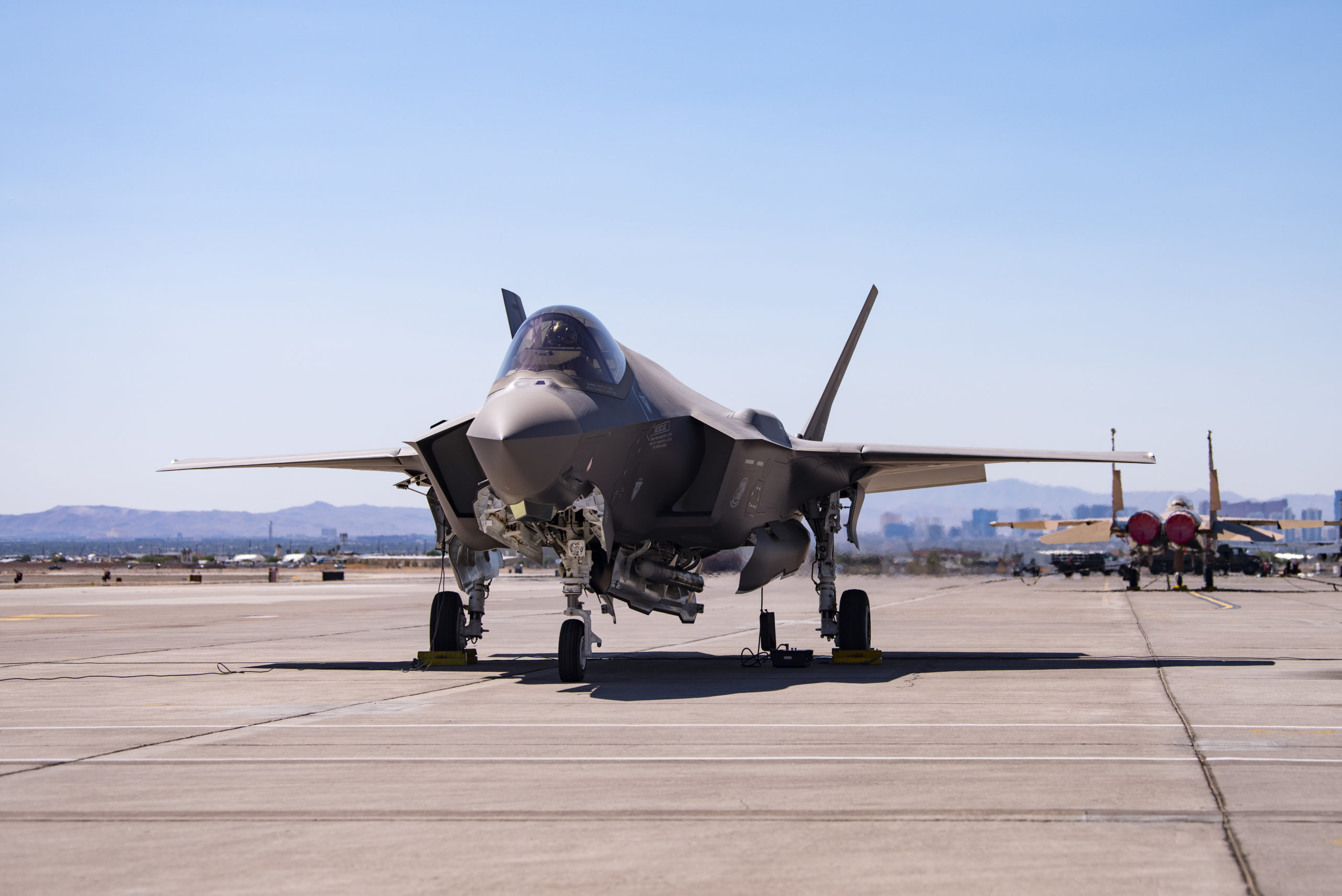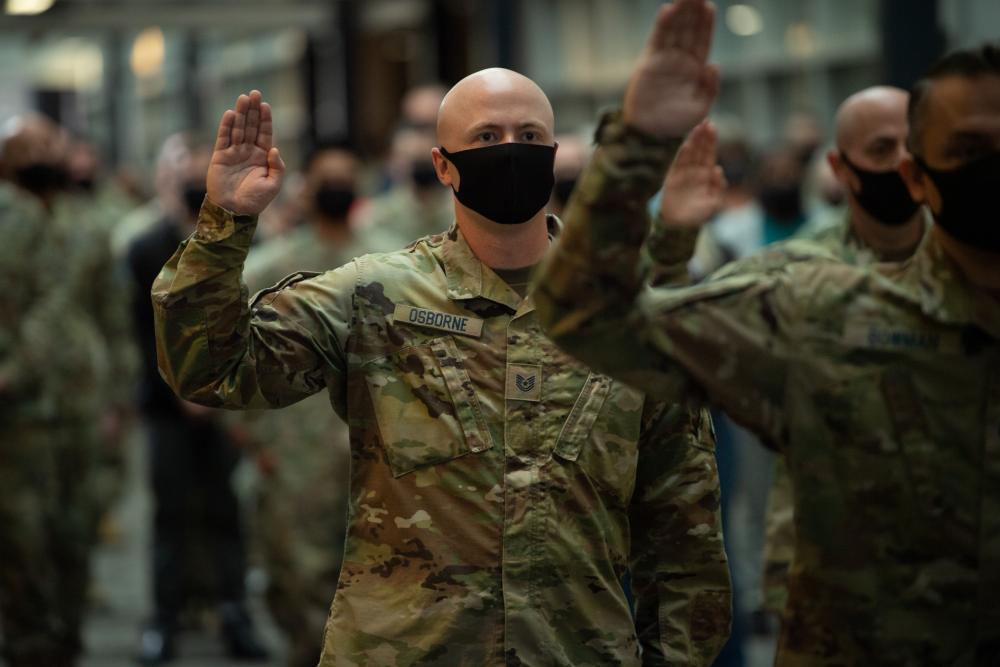The Space Force’s hub for fostering innovation and partnerships with startups and academia has selected two dozen teams to participate in its latest challenge with the hope of developing technologies to solve several key problems in space—including one of the Air Force Research Laboratory’s Vanguard efforts.
The 2021 Hyperspace Challenge, run in part by the AFRL on behalf of SpaceWERX, will include 13 small businesses and 11 university teams. Those selected teams will meet Dec. 2 for the Hyperspace Summit to pitch their ideas and technologies, with the most viable ones receiving the contest’s $100,000 “in cash prizes … to expedite follow-on activities related to establishing government acquisition or contracting opportunities,” according to a press release.
The teams were presented with six problems to work on this year—rapid initial orbit determination; smart sensing and machine learning for ground-based remote sensing of space objects; leveraging microgravity for military/commercial applications and products; quantum sensing for location and electromagnetic field detection; on-orbit servicing, assembly, and manufacturing; and rocket cargo technology for agile global logistics.
That final problem in particular is one the AFRL has been studying for several months. In June, the AFRL announced Rocket Cargo as its fourth Vanguard program, making it a top priority to move from science and technology development to real-world programs.
The hope, officials and scientists say, is to deliver large cargo loads, up to 100 tons, anywhere on the globe within hours using space launches. Observers were quick to note when the program was announced that the idea brought to mind aspects of SpaceX’s Starship, which is the “only rocket in development that plans to both be reused and can … launch that much mass,” according to CNBC.
For the Hyperspace Challenge, SpaceWERX is challenging teams to address three main concerns: How would the rockets air-drop cargo in places where they can’t land; developing “intermodal cargo containers” to be used in mass for space launches; and engineering a cargo bay and logistics for rapid loading and unloading.
Teams addressing these challenges will have to contend with dropping large payloads at high speeds, some of which cannot be broken down, in containers that will need to be transferable to other transportation methods and can survive a 150-foot drop, according to the Challenge’s website.
2021 Hyperspace Challenge Startup Teams:
- Astroport Space Technologies Inc. (San Antonio, Texas)
- Atomionics (Albuquerque, N.M.)
- G-SPACE Inc. (Sunnyvale, Calif.)
- Knight Aerospace (San Antonio, Texas)
- Lunar Outpost (Evergreen, Colo.)
- Neutron Star Systems USA Corp. (Colorado Springs, Colo.)
- O Analytics Inc. (White Hall, W.V.)
- Obruta Space Solutions (Ottawa, Ontario, Canada)
- Quaternion Consulting Inc. (Herndon, Va.)
- SCOUT (Alexandria, Va.)
- TurnRock Labs (Seattle, Wash.)
- Varda Space Industries Inc. (Torrance, Calif.)
- Vegamx (New York, N.Y.)
2021 Hyperspace Challenge University Teams:
- Embry-Riddle Aeronautical University (Daytona Beach, Fla.)
- New Mexico Tech (Socorro, N.M.)
- SFluor Inc. (Albany, N.Y.)
- Stevens Institute of Technology (Hoboken, N.J.)
- SUNY Polytechnic Institute (Albany, N.Y.)
- Texas State University (San Marcos, Texas)
- University of Texas at El Paso (El Paso, Texas)
- Pennsylvania State University (Freeport, Pa.)
- University of Cincinnati (Cincinnati, Ohio)
- University of Colorado Colorado Springs (Colorado Springs, Colo.)
- Utah State University (Logan, Utah)
